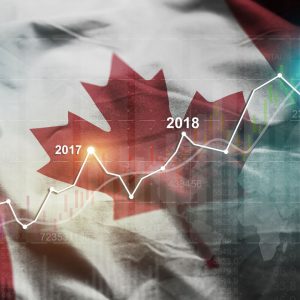Et Sicut Radix Ad Arborem (As the Root So the Tree)
In the May–June issue of COMER, we carried a three-part series of articles by Ed Finn, first published in the CCPA (Canadian Centre for Policy Alternatives).
That series (accessible at comer.org) is an invaluable analysis of the “thinking” behind neoliberalism, and its consequences.
It’s an excellent place to begin for any of us serious about preserving life on this planet for, understanding this pernicious ideology is essential to finding our way out of the socio-economic trap in which we are all – proponents and critics alike – being driven to self-destruct.
Part I: What We Need to Know about Neoliberalism (Before It’s Too Late)
Monbiot’s definition of the neoliberal ideology is a provocative challenge to much of what our political economy has become over the past four decades, and emphasizes our need to take stock and think about where all that is taking us.
The notion that “everyone gets what they deserve,” for example, raises the question, “Just what does everyone deserve?” If the neoliberals are correct, a good number of us would seem to belong to George Bernard Shaw’s “undeserving poor,” while those responsible for the 2008 debacle are just too precious to fail, and rate the $17 trillion bailout the US Fed coughed up.
Perhaps the most significant factor foiling the struggles of various activists worldwide to solve our outstanding problems, has been the failure to recognize that these problems are all connected.
George Monbiot’s definition sparks an insight into these connections by linking the manifestations of neoliberalism – of which we are only too aware – with the underlying ideas that they reflect, naming – categorizing them.
How could you diagnose a disease without relating its various symptoms? More than one ailment can cause a rash.
It truly is “scary” that so many strong and lucid warnings about the growing power of the global corporate elite, and despite such stark and crushing examples of consequences, should have taken that long to raise awareness to its present level.
The suggestion that, however ugly its consequences may be, capitalism beats communism and anarchy is a prime example of the flawed black-and-white “thinking” that suffocates creative problem-solving. This is the same level of thinking that sold Maggi Thatcher’s “TINA” (there is no alternative): message.
While it is discouraging that, although the key prerequisite to accomplishing meaningful change has “clearly been achieved” it hasn’t led to the “strong political crackdown” anticipated – especially given the 2008 meltdown – that’s a valuable lesson, and grist to our mill. The better you know what you are up against, the more likely you are to succeed.
As for the politicians – that’s not an insuperable complication.
Pathological consumption is the builtin imperative of a pathological economic system, and is potentially and increasingly a powerful incentive to change.
The list of what is profitable is a potent condemnation of the profit priority, that could provide an excellent chapter in a good course on progressive economics.
The basic importance of “free trade” to the neoliberal takeover is a theme that deserves further scrutiny in future issues of this journal. Finn’s attention to particular clauses in trade deals bears out the sentiment central to George Crowell’s article, included in this issue.
The TPP is also a litmus test for the rest of us. Anyone who doesn’t know why, should tap into the vigorous movement against it. Will Canadians have what it takes to pressure Trudeau into rejecting the TPP?
Part II: Free Trade Extends Scope and Power of Corporate Oligarchy
Finn’s account of his spirited defence of the use of the term “barbaric” reflects one of the most curious tendencies that sometimes protect us from realizing or acknowledging awkward insights – a kind of political protocol to protect us from too uncomfortable a ‘rocking’ of the boat.
I used to worry about criticizing people for taking the stand they did, when perhaps they sincerely believed it was the right thing to do. Then I attended a Frazer Institute conference on Canada’s deficit. I came away convinced that whether or not they really believed their own arguments they were wrong, and had to be resisted. The problem is to determine who is “right” and who is “wrong” – hence such institutions as political, economic and legal systems.
Then, the problem lies in who’s best interests those institutions come to serve. Then what?
Finn certainly doesn’t underestimate the challenge to change! It is indeed “formidable”! But he does equip us with, however negative, the bad news that we need to know if we are to succeed.
The good news is that while the barriers may be formidable, they are not insuperable.
His is an objective appraisal.
Despite the note of despair expressed in his conclusion, Ed Finn is neither selfdeluded nor cynical – a feat, given what he knows.
There is a note of optimism in the title of Part III: “The Future’s Not Ours to See – But It Is Ours to Shape.
And Finn’s contribution does not smack of giving up!
We have a lot going for us. There is encouraging evidence that a good many of us are getting the message and working hard to get out of that pot while we still can. Besides, quitting is not an option, morally or pragmatically. We need to start where we are and do what we can.
Élan








